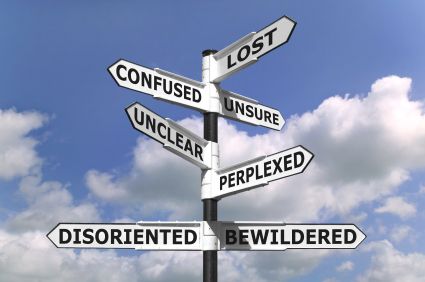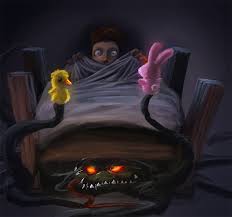Maybe I’ve mentioned this in a comment, but I’ve been reflecting on my life and has come to the conclusion that I really only have one friend here in Houston that I can hang out with on a regular basis. All the others scattered after Erik died. I guess that’s natural because it’s uncomfortable to be around a mother who’s lost a child, a mother who’s lost a child to suicide, and on top of it all, a mother who’s lost a child to a violent death. What can you say to that? How can you talk to a person in such deep grief? I can imagine their discomfort. So I spend most of my days working on the book and my blog, laptop in my lap. That said, I’m very lonely. I know how Erik felt when he was alive. One of the reasons I started Yoga is because I hoped to find a friend there, but after the class (of 6) everyone gets up and leaves without a word. Maybe their still deep in meditation. One thing my son, Lukas, suggested was for me to have regular get-togethers with blog members who live in Houston. What do you think? Please tell me in the comment section rather than by email. Okay, enough of the pity party. Let’s lend Erik our ear, but first another quick poll:
Uncertainty is the root of fear
Distrust is the root of uncertainty
Scarcity is the root of distrust
Hostility is the root of scarcity
Sorrow is the root of hostility
Attachment is the root of sorrow
Fear is the root of attachment
Chaos is the root of all
Harmony is the equal opposite of chaos
The world has become a place of distrust where we tend to think the worst of strangers and sometimes even those whom we know well. We think, “What do they want from me?” “What agenda do they have that will hurt me?” Maybe that’s why we don’t make true eye contact with people. If we look at them at all, we glance at their faces rather than those windows to the soul. From time to time, I experiment with eye contact. For example, when I pick up my Quarter Pounder (Who says I’m a health nut?) at the McDonald’s drive-thru window, I say thank you while making sincere, soul-to-soul eye contact. When I do, I see a subtle change in that person: a lifting of their guard, a crack in a wall, a sense of appreciation. Such a simple little thing.
Distrust of others is one thing, but we often don’t trust ourselves. Maybe we’ve repeatedly let ourselves down by not meeting the expectations we have for ourselves. Maybe we have a hard time controlling an urge. Maybe we don’t trust ourselves to make the right choices.
We also frequently distrust our future. What goals will not be met? What hopes will be dashed? Will we get that promotion? Will our unborn child survive until birth? Will the Sox win the Pennant? Despite being raised in an environment where I was subjected to harm, I tend to have no problems trusting others. Call me a slow learner, but I’d rather think the best of people and be disappointed some of the time than think the worst of them and be miserable all of the time, but since Erik’s death, trusting the future has been a struggle. I can no longer be complacent in believing that everything will be okay. After all, I woke up the day of his death feeling it would just be a day like any other, but it became the day that would break me. What will that next phone call bring? What knock on the door will be from a state trooper there to tell me that one of my other children was in a fatal accident? So many questions, so many cautious hopes, so many feelings of pessimism, so much uncertainty.
Me: Now, you say distrust is the root of uncertainty. What do you mean by that?
Erik: When you don’t trust yourself or others in a situation, it makes you feel uncertain. What is the quality inside of a person that allows them to trust something or someone?
Me: Vulnerability?
Erik, in a very sappy voice, giving the image of draping his arms over my shoulders: I love you, Mom.”
Me (sweetly): I miss you, Erik.
Erik: When you’re vulnerable, like for real, that’s when your head and expectations are behind you. The knowledge of everything you know is behind you because when you’re really vulnerable, you’re open to future possibilities instead of focusing on the past. Then, when something comes into your life while you’re in that vulnerable state and it resonates with a strong sense of peace, you build a trust. It’s like having faith between you and someone else or you and a situation or you and a belief or you and yourself. When you’re open—I wish we would get rid of that fucking word, “open” because when you say it, then you have the word, “closed.” And when you’re open, it’s like, “Oh, is that enough for the toe? The foot? The body? Are we propping it up with the little metal froggie thing that we put in front of the door?” Use the word, “vulnerability” instead because you can’t have 2% vulnerability like just a toe inside. You either have it or you don’t.
Me: You can’t be just a little bit pregnant. Of course the word, “vulnerability” implies weakness in our culture.
Erik: Such a shame, but it was the way they—
Me: Who’s they?
Erik: Governments, institutions, corporations, society. They use their definition of the word to control people. Let’s take the Do-do bird.
I wonder where this is going?
Erik: Extremely docile. Man came up to the bird and labeled the bird as totally vulnerable, The Do-do was like, “Hey dude. Whatcha got? Who are you?”
He says this in s sweet, high-pitched voice. Think Karen Carpenter.
Erik: They were instant pets, instant friends, and then Man decided, “What a stupid animal. It should be afraid of me. I’m going to kill it.” So they started killing the Do-dos and, all of a sudden, what happened to them? They also introduced other animals where they lived, the pigs and stuff, and they all killed the Do-dos. The Do-dos didn’t have the fear—
Me: So vulnerability didn’t exactly work out for the Do-do bird! Where are you going with this?
Erik: People use the term “vulnerable” to describe the Do-do when really that isn’t the right word. To most humans, that version of the word implies weakness, but I’m just saying that this is one of many examples of why the word “vulnerability” evolved to mean weakness instead of a very powerful thing. So they started thinking that when people come up to you, and they’re really open and friendly, they’re vulnerable. They mean that as a weakness.
Me: Well that does happen. People who are open and sweet very often are subject to an attack of some sort. That’s what makes it difficult to be vulnerable. That’s why we have that distrust. There’s always that chance that, if you’re vulnerable, you’re going to be hurt or taken advantage of.
Erik: Let’s say you’re walking up to a man with a gun, and you go, “Hey man, can you please put your gun away?” I mean, that can pretty much be labeled as stupid unless you’ve been trained to handle someone with a gun.
Me: Right.
Erik: So people could look at that and say he was “vulnerable.” He was stupid; he could have been killed; he must be weak. I’m just saying that society uses the term in the wrong way. The vulnerability I’m talking about is not based on logic. It’s not based on how someone reacts to something. It’s not how the Do-dos were. It’s not what the dude did by telling the guy to put his gun away. True vulnerability is an emotional reaction, and it overrides logic. It’s not a weakness, but it can be used as a weakness if you project it from a place of fear and uncertainty. Your expectations and beliefs, all that heady stuff, is not behind you; they’re ahead of you, and that’s going to create so much uncertainty.. You have to ask yourself what definition of vulnerability you’re operating from. Is it the one that makes you feel like you’re without, or is it the one that you think will bring to you, empower you? One comes from begging; the other comes from asking. Begging comes from desperately wanting certainty.
Me: So vulnerability is an emotional state you have to allow yourself to be in—it’s probably our natural state—in order to dissolve that distrust that’s at the root of uncertainty?
Erik (pretending to hit a big bell): Ding, ding, ding!
Me: Okay. What’s my door prize?
(Pause. I guess no prize for me.)
Erik: Yeah. Think about it. Uncertainty. Uncertainties are like little hand sparklers. The sparks fly really fast. Boom, boom, boom, and you’re trying to solve each one. But distrust is like one of those eternal flames. It’s on all the fucking time. I mean, you can think of uncertainty as being a small portion of distrust because it seems so fleeting. That’s because you’re going to try to change your attitude or perspective to fix what you’re uncertain about, but when you are lacking trust, this is more of a permanent belief, a constant background. Uncertainty is the fleeting foreground. Distrust is the undercurrent.




